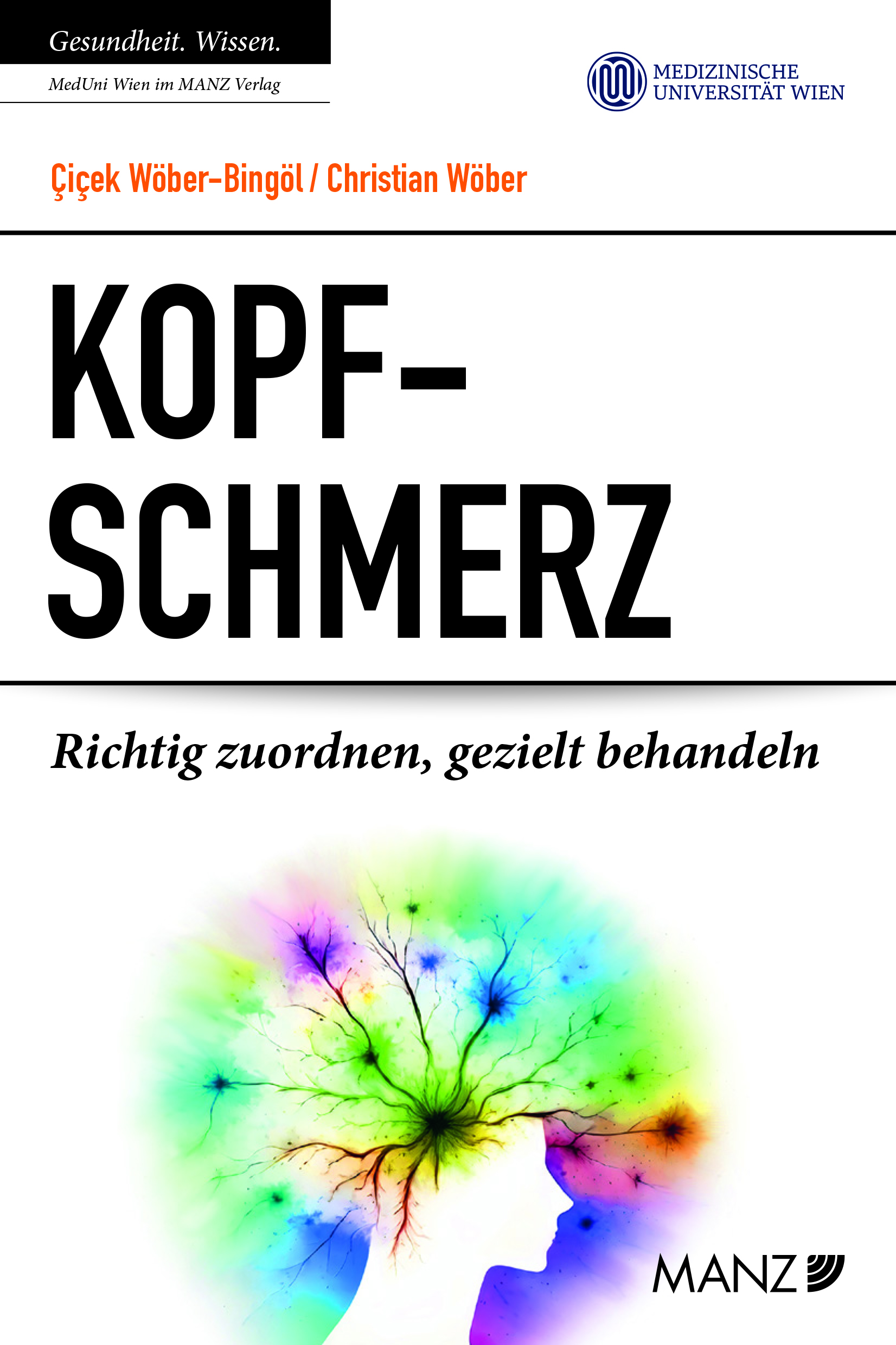
(Vienna, 07-05-2024) Around four billion people worldwide are affected by recurring headaches, and over 356 million spend more days of their lives with than without a "thunderstorm in their head". More than one billion - one million in Austria alone - suffer from migraine. Migraine patients in particular: in many cases, they can be helped with highly effective therapies, and yet around 50 per cent of them have never sought medical help. The recently published health guide "Kopfschmerz. Richtig zuordnen und gezielt behandeln", published by MedUni Vienna's MANZ publishing house, provides a comprehensive and scientifically sound overview of the disease and the wide range of treatments for migraine and other forms of headache.
Often still trivialised as subjective complaints or even mood disorders, headaches are the third most common reason for the loss of healthy life years due to illness after strokes and dementia. People with migraines in particular are still confronted with myths such as a (performance-orientated, ambitious, perfectionist, obsessive) "migraine personality" or the belief that nothing can be done anyway. "Ideas like these are not only wrong, but are also partly responsible for the fact that headaches are often diagnosed and finally treated effectively only after a long delay," emphasise the book authors Çiçek Wöber-Bingöl and Christian Wöber from MedUni Vienna's Department of Neurology.
Clear biological causes
The neurobiological basis of migraine in particular has now been scientifically confirmed. Mechanisms of the disease have been defined and targeted, highly effective therapies have been developed. Many factors that are considered to trigger headache attacks have also been scientifically analysed. "Migraine triggers are very individual and cannot be generalised," emphasise the neurologists. For example, a study involving MedUni Vienna showed that certain weather conditions increase and decrease the risk of migraines with the same frequency.
Living better with migraines
Today, migraine patients have a wide range of treatment options at their disposal, which can be used according to individual requirements. Whenever migraine attacks interfere with everyday life, medical support is essential. The aim of treatment is for an acute attack to subside within two hours and, in the case of frequent attacks, to reduce the number of monthly migraine days by at least 50 per cent. The active participation of the patient is also required. This includes sufficient fluid intake, regular meals and enough sleep as well as endurance sports or relaxation training. "It is important to actively involve those affected and not rely solely on passive therapies such as acupuncture, medication or other measures," Çiçek Wöber-Bingöl and Christian Wöber emphasise. Special approaches are required for children and adolescents, pregnant women and people over 60. "Thanks to considerable progress, it is now possible in the vast majority of cases to significantly improve the quality of life of patients with migraine," the headache experts encourage sufferers not to put up with the pain, but to seek medical help.
Practical and reliable information
In addition to migraine, the new MedUni Vienna health guide also covers the common tension headache and the comparatively rare cluster headache, as well as headaches caused by excessive use of medication and a range of other headaches. The authors' aim was to present the current state of scientific knowledge and to incorporate their many years of medical experience in the diagnosis and treatment of headaches. The result is a comprehensive and medically sound book that provides both practical information and scientific findings on around 240 pages. The book is aimed at all those who suffer from headaches, as well as their relatives and people who deal with sufferers.

More details:
„Kopfschmerz. Richtig zuordnen, gezielt behandeln“,
Çiçek Wöber-Bingöl, Christian Wöber,
MedUni Vienna at MANZ Verlag,
ISBN 978-3-214-25238-0,
248 pages, 23.90 euros.
Only available in German, online and in bookshops.